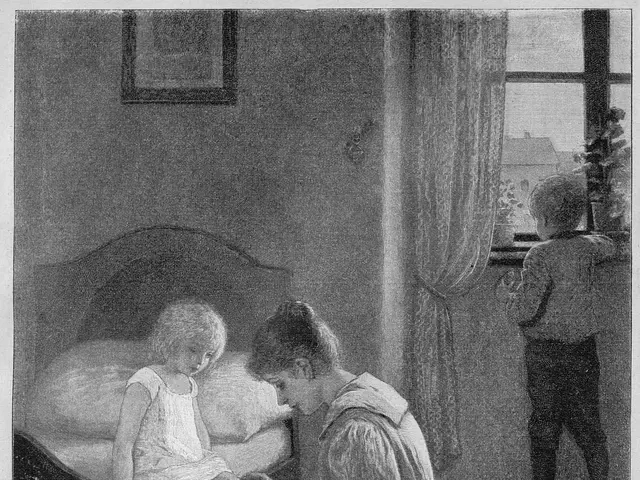Increase in Senior Citizen Population, as per ECLAC Secretary's Statement; Highlights the Essentiality of Supportive Care Structure
In a significant move towards promoting gender equality and fostering sustainable development, the Economic Commission for Latin America and the Caribbean (ECLAC) and the International Labour Organization (ILO) have launched an initiative to guarantee child and elderly care at international standards by 2035 in the region.
The goal is to achieve a more inclusive, productive, and sustainable future by recognising care as a right, a productive labour force, an economic driver, and a global public good. This transformation towards a "care society" is framed as part of a broader vision to accelerate substantive gender equality and establish a solid foundation for a caring society.
To achieve this vision, the institutions call for a gradual increase in care-related expenditure, averaging 0.4% of GDP annually until 2035. This investment is expected to generate 31 million jobs in the 23 countries for which information is available, representing 12% of the projected labor force by 2035.
The Executive Secretary of ECLAC highlighted the need to recognise care as a necessity, a right, and a productive work. The care economy, which employs 27.4% of women in the region, is plagued by gender inequalities in the quality of employment, number of hours, and income. Women's unpaid work load exceeds 20 hours a week until the end of their lives (80 years and older).
The lack of care policies burdens women with unpaid work, weakening the productive system. In most countries, women work more hours than men, but mainly in an unpaid capacity. Closing the gender gap in the labor market could increase the women's employment rate from 52.9% in 2019 to a projected rate of 63.2% in 2035.
Building a care society implies recognising the relationship between productive structures and care. Low productivity structures exacerbate inequality and labour precariousness, increasing the demand for care. It is key to integrate care as an economic engine and evaluate how productive systems affect it.
Paid domestic work is 10.3% of women's employment in the region, but only 24% of workers have pension coverage. Acting today is to sow hope for future generations, ensuring that care, in all its forms, is recognised as the foundation of a fairer society.
The care of all people and the planet should be at the center of public policies in all sectors and at all levels of government and state powers. The initiative to guarantee child and elderly care at international standards by 2035 is a step towards this goal, calling for progressively increasing resources allocated to care to achieve these standards.
[1] For more information, please refer to the official documents from ECLAC and ILO.
Read also:
- Impact of Alcohol Consumption During Pregnancy: Consequences and Further Details
- The cause behind increased urination after alcohol consumption is explained here.
- West Nile Virus found in Kentucky for the first time; residents advised to take protective measures
- Symptoms, Timeframe, and Recovery from Cocaine Detoxification







